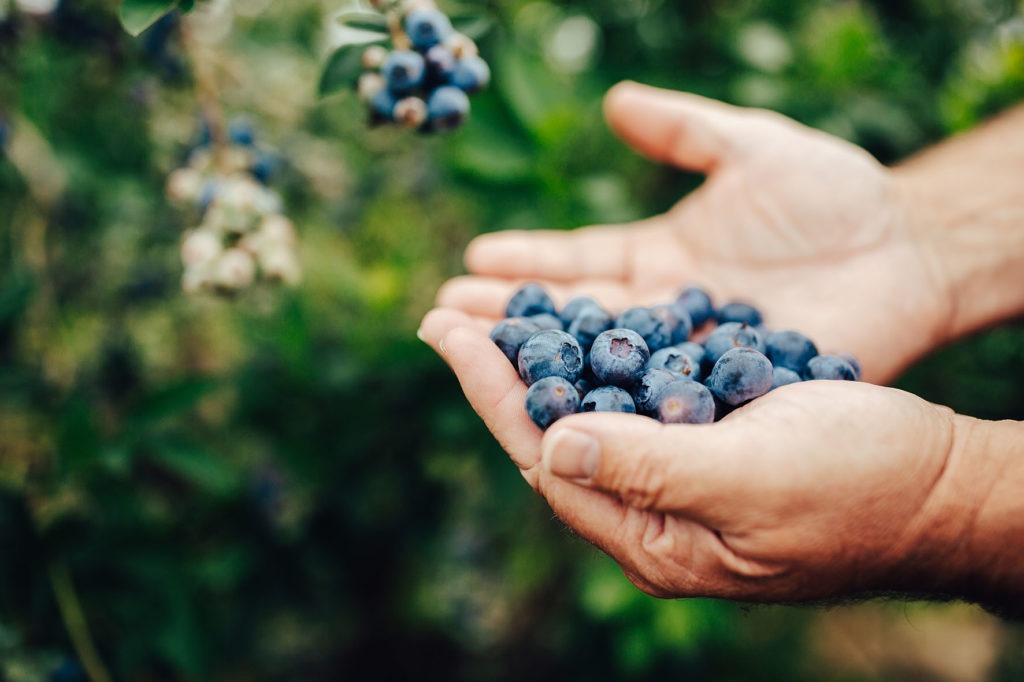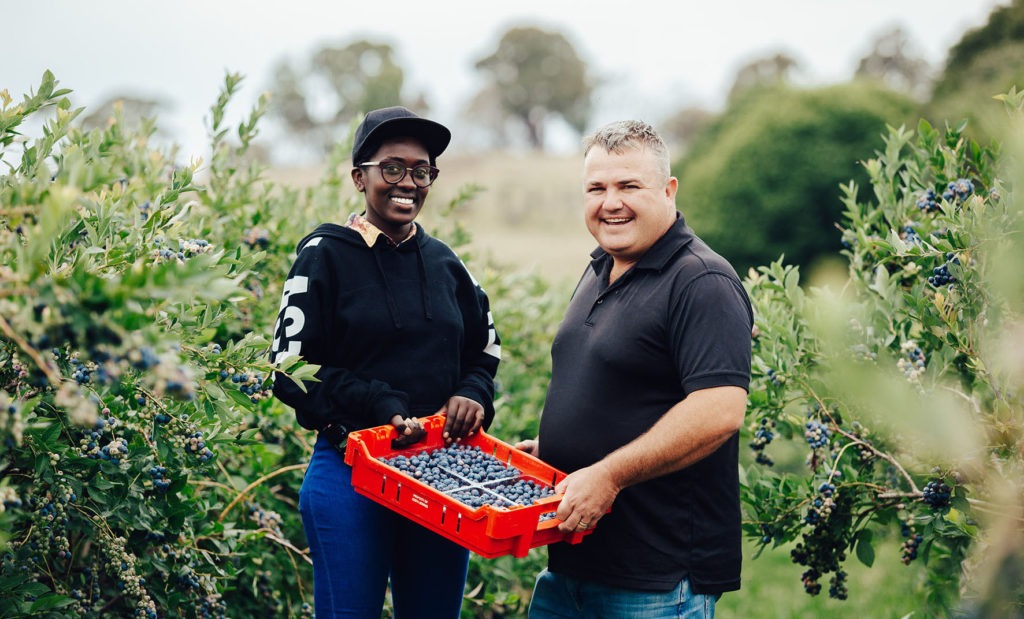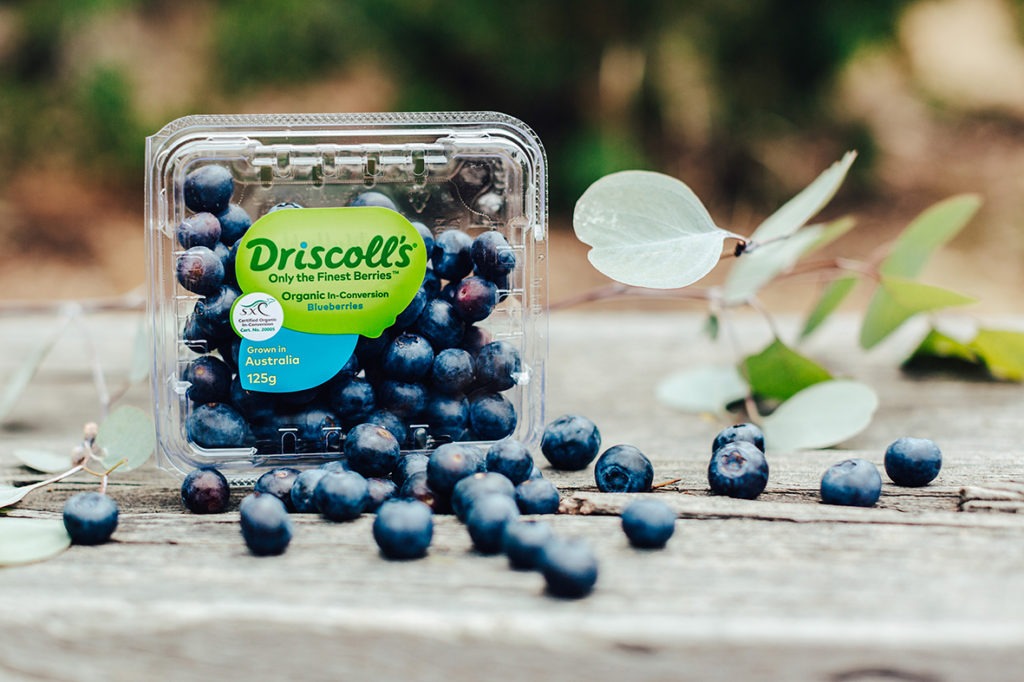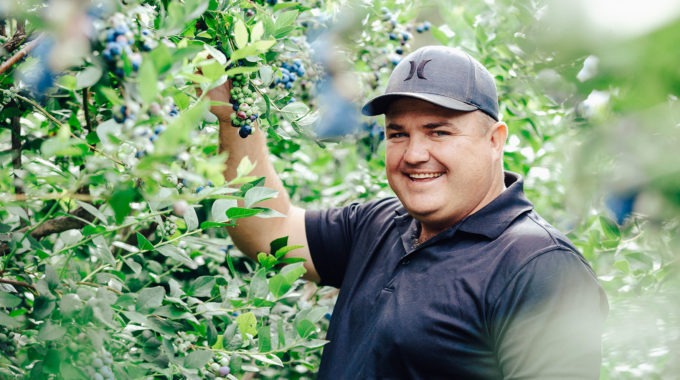NSW blueberries are seeing green
Driscoll’s, one of Australia’s biggest distributors of Australian-grown berries with more than 100 years’ experience, is making the move towards organic farming, now offering organic in-conversion blueberries through to mid-February.
Nico Mulder from the Snowy Mountains town of Tumbarumba in NSW is Driscoll’s first organic in-conversion farmer. He has been growing blueberries for Driscoll’s since 2013, and in the last year, he began the shift to organic farming production.

What does “organic in-conversion” mean?
“In-conversion” is the status given to producers who are in the process of converting their operation to organic. They’re considered in-conversion when one of Australia’s six organic certifying boards has deemed their operation suitable for certification. In-conversion producers have stopped using pesticides or prohibited substances but don’t have a full A-grade status because the farmland needs time to leech itself of previously used substances.
If the operator is inexperienced in organic management systems, they need to undergo a 12-month supervision period by an accredited certifying agency to ensure a workable conversion plan is in place. They can’t use the term “organic in-conversion” on their produce until this has been established.

On the road to certification
Converting your farm to organic is a huge undertaking. However, Tumbarumba’s high elevation and low pest pressure made the decision to transition to organic production a relatively easy one for Mulder. He has had to employ more staff to account for increased weed spraying. He’s also invested in expensive certified organic soil inputs and implementing new composting processes. Only organic pesticides and crop protectants are used; no chemicals are used at any stage. All of Mulder’s workers have now also been trained and educated in the organic production model.
Primary producers need to go through several audits before they can become certified organic; they need to manage their business according to the organic certification body’s standards which are underpinned by Australia’s organic standards. Becoming accredited is a long and rigorous process. While Mulder’s farm won’t be fully certified for a few more years, he’s already yielded his first organic in-conversion blueberries.

Handled with care
Mulder’s blueberries are carefully hand-picked and packed each day during harvest. They’re then transported to a Driscoll’s cooler that same afternoon. There, the berries are inspected for quality and shipped as soon as possible. This ensures they arrive at the store fresh, ripe and delicious. The level of attention required does make the production of blueberries capital-intensive, but anything less would compromise the quality of the fruit.
“We think it’s important people are aware of the term ‘organic in-conversion’,” says Driscoll’s General Manager, Jon Gleeson. “Then they can make more sustainable choices and support farmers who’ve dedicated to this transition for the betterment of the planet.”
Driscoll’s Australian berry farmers have become known for their commitment to biodiversity, water management and low chemical use over the last decade. These measures produce berries that not only taste great; they are more nutritious and kinder to the environment. Driscoll’s aim is to offer organic berries across all four Driscoll’s berry types – blueberries, blackberries, raspberries and strawberries – in the coming years.
You can now find Driscoll’s Organic In-Conversion Blueberries in supermarkets and independent grocers across Australia.









